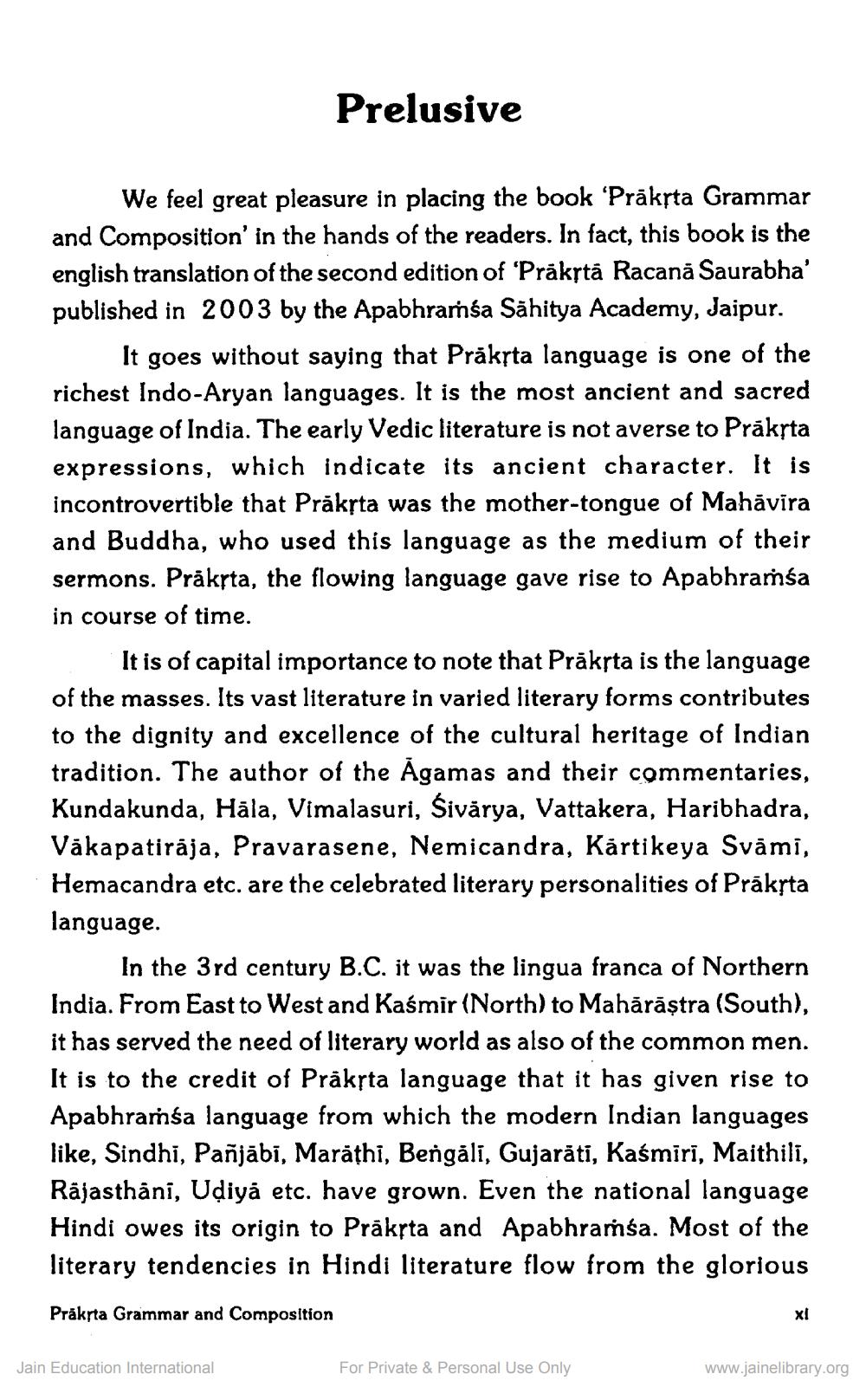________________
Prelusive
We feel great pleasure in placing the book ‘Prākta Grammar and Composition' in the hands of the readers. In fact, this book is the english translation of the second edition of 'Prākstā Racana Saurabha' published in 2003 by the Apabhraíša Sāhitya Academy, Jaipur.
It goes without saying that Prāksta language is one of the richest Indo-Aryan languages. It is the most ancient and sacred language of India. The early Vedic literature is not averse to Prāksta expressions, which indicate its ancient character. It is incontrovertible that Práksta was the mother-tongue of Mahavira and Buddha, who used this language as the medium of their sermons. Prākrta, the flowing language gave rise to Apabhraíša in course of time.
It is of capital importance to note that Prāksta is the language of the masses. Its vast literature in varied literary forms contributes to the dignity and excellence of the cultural heritage of Indian tradition. The author of the Agamas and their commentaries, Kundakunda, Hāla, Vimalasuri, Sivärya, Vattakera, Haribhadra, Väkapatiraja, Pravarasene, Nemicandra, Kartikeya Svāmi, Hemacandra etc. are the celebrated literary personalities of Prāksta language.
In the 3rd century B.C. it was the lingua franca of Northern India. From East to West and Kaśmir (North) to Mahārāştra (South), it has served the need of literary world as also of the common men. It is to the credit of Praksta language that it has given rise to Apabhraíša language from which the modern Indian languages like, Sindhi, Pañjābi, Marathi, Bengali, Gujarāti, Kaśmiri, Maithili, Rajasthani, Udiya etc. have grown. Even the national language Hindi owes its origin to Prākta and Apabhraṁsa. Most of the literary tendencies in Hindi literature flow from the glorious
Prakrta Grammar and Composition
Jain Education International
For Private & Personal Use Only
www.jainelibrary.org




